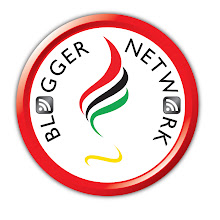Wow, what a debate. We have seen discussions, research, lobbying, arguments, protesting, spitting, name calling, and on and on. And in all of the posturing and sharing of ideas from one side to the other, the question you have to ask yourself is “Where is the truth?”
In this issue, that question is loaded and very challenging to grapple with. If ever there was a time when understanding and apply our truth lens (epistemology) would come in handy this seems to be it. In our book Through the River, we talk about three ways of viewing truth that we call truth lenses that exist and influence us today.
So why don’t we walk through the three lenses and how people in each camp might try to derive truth about the healthcare debate. It should be an interesting journey and I’m sure it will garner some dynamic responses! So strap on your seat belt and let’s go….
Positivists:
If you are a positivist (a rock dweller in our river analogy) you believe that your job every day is to add truth and subtract untruth. You also believe that truth is a picture puzzle and your job (along with those around you) is to uncover the pieces and put them in their place.
A rock dweller approaches the healthcare debate with a specific idea about the truth in this matter. Their job is to take every new piece of information about the bill, the players and the ramifications and hold it up to what they believe and either add it or subtract it. Because they understand truth as a picture puzzle, they believe there is one right answer about healthcare reform and that they must uncover it and champion it at all costs.
In essence they agree to agree or they break relationship. We have plenty of rock dwellers in this debate don’t we? In fact, entrenched positions and understandings of truth have been part of the very contentious nature of the debate.
Instrumentalists:
If you are an instrumentalist (an island dweller in our river analogy) you understand truth personally. You believe that truth exists, however you are not convinced that your truth can be shared with others. Instead of a picture puzzle, you view truth as a collage where everyone’s understanding and personal experience are summed up into this big dynamic picture that ends up looking a lot like modern art – interesting but not particularly like anything you can point to in life.
An island dweller approaches the healthcare debate in a very pragmatic way. They inventory their personal experiences, their understanding, their perspectives and the facts and come up with the truth that they know and believe. They may believe their position very strongly and speak adamantly about the healthcare issue, but deep down they don’t expect anyone to reach the same particular conclusion as they have reached. The truth is personal. In the end their perspective will be based on their healthcare experience and needs. It may also be based on their passion for the cause of either side of the argument. The key is that island dwellers have no bridges so in the end their view and perspective is their own and they must live with it as individuals.
The island dwellers agree to disagree, knowing that consensus is impossible. There are many people who hold personal perspectives about this issue but don’t pretend that others will agree; aren’t there?
Critical Realist:
If you are a critical realist (a valley dweller in our river analogy) you believe that there is absolute truth that can be shared and can serve as a platform but you also believe there is much truth that is unknown and can only be learned in community. Another way of saying it is that there is truth you know and truth you are learning. You promote the idea of objective truth but you insist that it is understood subjectively. That looks like a montage of many small pictures that come together to make a clear and powerful picture.
A valley dweller approaches the healthcare debate by working to establish the truth that they know…about the government’s past performance in similar programs, the specific elements of the bill, the potential implications and so on. Once there is a clear understanding of what is known within the valley dweller’s community (and validated by other sources), then that person begins to challenge his/her community to humbly learn together. They discuss the subjective reality, process the personal experiences, and look for new perspectives on the issue that could help them expand what they know.
This group agrees to learn together and does not break relationship even if they are not on the same page yet. This is a relatively new approach in our world and we don’t see a lot of people naturally taking this tactic yet. But what would the debate have looked like if they did?
Challenge
Ok, we quickly explored how people with different truth lenses might respond to the healthcare debate. Now here is your challenge:
1. What truth lens did you use when dealing with this issue?
2. As you reflect on each one, which one represents a Biblical approach and why?
3. Which one reflects the character of God incarnate – Jesus – as he interacted with challenging issues during his time on earth?
4. What will you do the same or differently when the next big truth issue comes up in your world?








